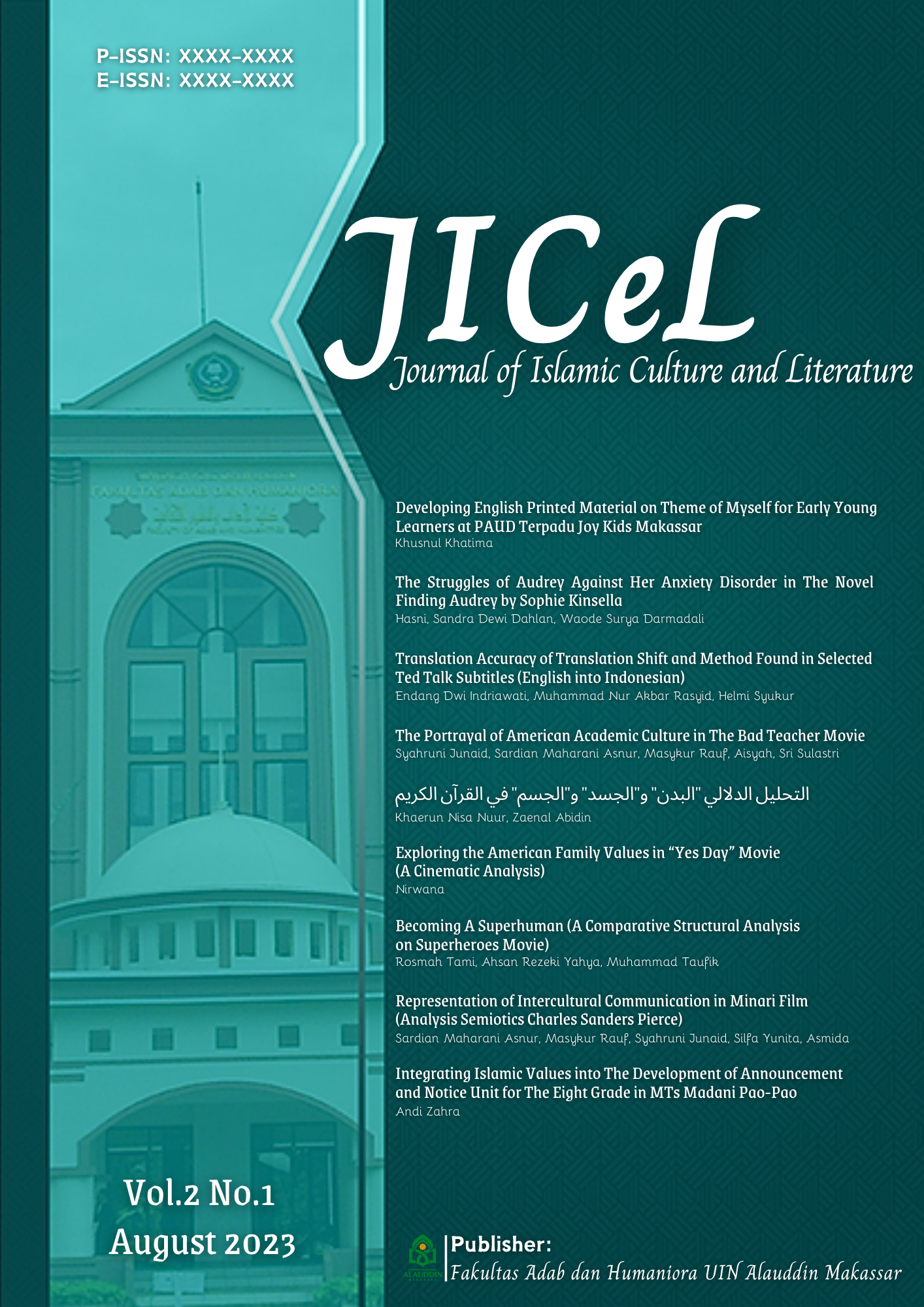Exploring the American Family Values in “Yes Day” Movie (A Cinematic Analysis)
American Family Values (A Cinematic Analysis)
Abstract
This study intends to investigate how American family values are portrayed and represented in the film "Yes Day." The study explores the themes, characters, and narrative components of the movie using a cinematic analysis approach to discover the underlying values and messages related to the American family. An overview of "Yes Day" as a cultural phenomenon in American society is given at the outset of the study. It focuses on the practice's potential effects on family dynamics and values while examining the practice's history and significance. The analysis next turns its attention to the actual film, going over its story, characters, and general presentation. The results of this study help us understand how American family values are portrayed in modern movies. The study also emphasizes some values such as togetherness, stability, and loyalty. Overall, this study provides a thorough examination of how the American family values depicted in "Yes Day" were captured through cinematic analysis. It contributes to the current conversation about family values in American culture and offers insights into the intricacies of modern family interactions.
Keywords: American Family Values, Cinematic Analysis, Yes Day Movie
Authors who publish with this journal agree to the following terms:
1) Authors retain copyright and grant the journal right of first publication with the work simultaneously licensed under a Creative Commons Attribution License that allows others to share the work with an acknowledgement of the work's authorship and initial publication in this journal.
2) Authors are able to enter into separate, additional contractual arrangements for the non-exclusive distribution of the journal's published version of the work (e.g., post it to an institutional repository or publish it in a book), with an acknowledgement of its initial publication in this journal.
3)Authors are permitted and encouraged to post their work online (e.g., in institutional repositories or on their website) prior to and during the submission process, as it can lead to productive exchanges, as well as earlier and greater citation of published work (See The Effect of Open Access).

3.png) Scopus ID:
Scopus ID:_3.png) ORCHID ID:
ORCHID ID: 3.png) G-Scholar ID:
G-Scholar ID: 3.png) SINTA ID:
SINTA ID: 
